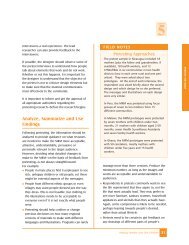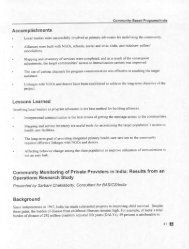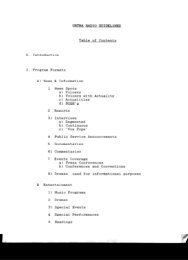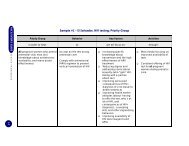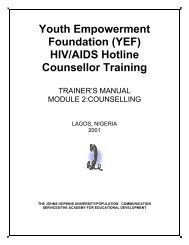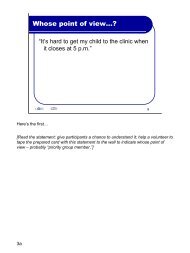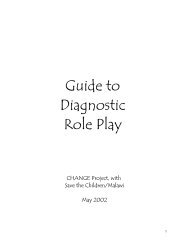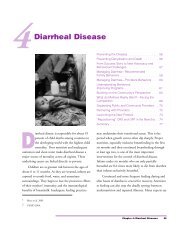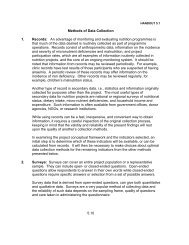MODULE TWO: COUNSELLING - FHI 360 Center for Global Health ...
MODULE TWO: COUNSELLING - FHI 360 Center for Global Health ...
MODULE TWO: COUNSELLING - FHI 360 Center for Global Health ...
You also want an ePaper? Increase the reach of your titles
YUMPU automatically turns print PDFs into web optimized ePapers that Google loves.
Mental Effects<br />
•Trouble concentrating<br />
•Memory lapses<br />
•Resentment, cynicism<br />
•Feeling “on edge”<br />
•Moodiness<br />
•Non-stop talking<br />
•Absenteeism<br />
•Lower self-confidence<br />
•Poor judgement<br />
•Anger and irritability<br />
•Feeling down, blue or hopeless<br />
•Withdrawal from others<br />
•Fidgeting<br />
All of these effects are also symptoms of stress. Counsellors need to be able<br />
analyse their own behaviour and feelings in order to see if they are suffering<br />
from stress. These symptoms can serve as a checklist to see how well a person<br />
is coping when in a stressful situation.<br />
COPING WITH STRESS<br />
The aim of this activity is to provide participants with strategies <strong>for</strong> reducing<br />
stress in their lives and work.<br />
A person’s ability to cope with stress is affected by many different factors,<br />
including lifestyle. There are several short-term and long-term solutions to<br />
dealing with stress.<br />
Short-term solutions<br />
•Laughter<br />
Laughter is one of the best ways to reduce stress. If you can’t make yourself<br />
laugh, then visit or talk to a friend who makes you laugh.<br />
•Flexibility<br />
Loosen up a bit and be more flexible in the way that you interact with the world<br />
around you. Do things according to what the situation demands, and not<br />
according to the way that you are accustomed do doing them. Try different<br />
ways of talking to people and dealing with events.<br />
•Saying “no”<br />
If you are overwhelmed, then say “no” to things that people demand. Avoid<br />
overburdening yourself with tasks or responsibilities.<br />
•Set reasonable goals<br />
Don’t set goals <strong>for</strong> yourself that are overly ambitious. Nobody is perfect, and it<br />
can be stressful to try and achieve perfection.<br />
•Take care of your body<br />
People often neglect their health and well being when they are stressed. Eat<br />
well, exercise, sleep enough and avoid stimulants such as caffeine.<br />
Session 10 – Pg. 3



